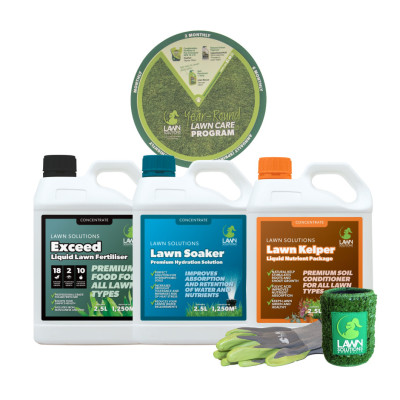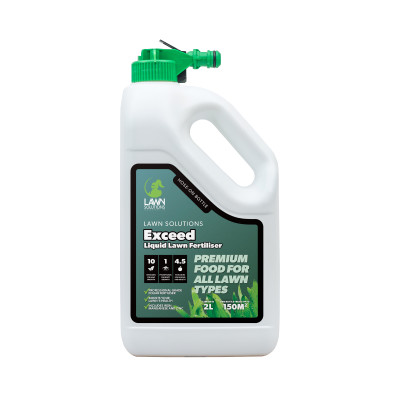Clover or Oxalis?
How to tell the difference
These two weeds, clover and oxalis, are commonly misidentified due to their similar leaf appearance, but they are different plants.
While treatment for both can be the same in many instances, it is important to understand how each of them grows so you can take action to prevent them from infiltrating your lawn again. There are also a many different species of oxalis that can be particularly tricky to eradicate from your lawn. This is why identification can be the key to success.
The main difference between clover and oxalis is that oxalis has small light green heart shaped leaves, while clover has oval shaped leaves.
White Clover (Trifolium repens) Common Oxalis/Yellow Wood sorrel (Oxalis Stricta)


Clover (Trifolium)
Clover is the common name for plants of the genus Trifolium, which consists of over 300 different species.
The clover commonly found in Australian lawns has leaves with three leaflets (4 if you’re lucky!) with circular markings and creeping stems that set roots at the point they touch the ground. The flower that it produces can be white or pink depending on the species (Trifolium repens, Trifolium fragiferam).

Treatment:
Clover is a legume that draws nitrogen from the air and stores it in its roots, so it doesn’t require a large amount to grow. Because of this, clover in your lawn can be a sign of nitrogen deficiency in your soil. When there is sufficient nitrogen in the soil for your lawn, clover will be much less likely to survive. As a result, an application with a lawn fertiliser high in nitrogen can assist in removing clover from your lawn.
A selective herbicide such as Lawn Solutions Australia All Purpose Weed Control, Estate Herbicide or Bin Die if you have available. Estate Herbicide 250ml Concentrate has recently been introduced to replace the recently discontinued product Bin Die Concentrate.
Oxalis (Oxalidaceae)
Oxalis, also known as wood-sorrel, is a genus of plants with green or purple leaves and many variations in flower colour including white, pink or yellow. Below we focus on the common species found in Australian lawns.
Creeping Oxalis (Oxalis Corniculata)
Creeping Oxalis, as its name suggests, quickly runs along the surface of the soil and produces roots from the leaf as it goes and creeps under and through your lawn. When seed pods mature, they dry out and explode, causing the seed to spread. It is a very invasive and nasty weed, so it’s important to take action against it as soon as possible.

Treatment:
Creeping Oxalis is difficult to remove as crowns break off leaving roots for re-growth. You can hand remove small plants or dig out sections where you need to if they aren’t particularly large. If there is a substantial spread of creeping oxalis through your lawn, you will get better results by spraying your lawn with a selective herbicide.
A selective herbicide such as Lawn Solutions Australia All Purpose Weed Control or Estate Herbicide will help to eradicate Creeping Oxalis in all lawn types including kikuyu and couch and are safe to use on most varieties of buffalo except the ST varieties.
Soursob (Oxalis Pes-caprae)
Soursobs spread with leaves along the ground, producing large yellow flowers with 5 petals and a long white tuberous root.

The problem with Soursobs is that they are extremely resilient to herbicides. They have a fast-growing system of onion like bulbs growing beneath the surface. In addition to this, they have small secondary bulbs known as bulbils. These bulbils are attached to the root system and each Soursob can have as many as 20 bulbils! When you remove the plant, the bulbils are left behind that then detach and grow into a new plant.


